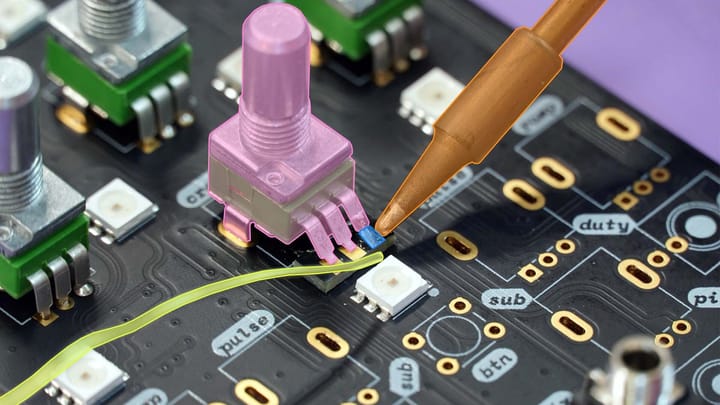AI and Data Annotation Industry Trends For 2023

With a new year come resolutions and a look forward to what the future may hold. Technology advances and evolves over time. It is vital to keep up with those advancements and industry trends. No one yet has a perfect crystal ball. However, we can look at the data and trends and extrapolate from them. As a result, we can make predictions with a higher degree of certainty. As always, it is essential to understand that past performance may not indicate future results.
Software as a service (SaaS) will remain a popular business model that will continue to be widely adopted. That's because it creates a predictable, steady revenue stream for businesses. Customers can usually write off the expense. Coupled with this, more AI products will be offered by websites and hosted in the cloud. More of these kinds of products will be offered for business owners and their employees to use.
More people without fancy degrees will perform complex analytics and gain high-value insights. They will be able to leverage AI to do this without needing to be so technical. Currently, many businesses are not yet benefiting from AI products and services that scale and are easily managed. That will all soon change. More of the complexity will be abstracted and hidden away. Likewise, more simple, repetitive tasks will be automated away.
As AI becomes more democratized, other business departments will benefit from AI. That includes overlooked areas such as sales, human resources, and even management. These are people and areas often overlooked by AI marketers, who may not know they are good target customers. Currently, they tend to focus on IT, who already know what they need and want. This democratization of AI and data will mean more people need to learn to use AI in their work.
AI-generated content and AI that helps humans create better content will continue to improve and be more widely used. We can tell that AI art is art because it is controversial. AI art also makes people feel emotions, even if that emotion is anger. Therefore, AI art is art. We will also see AI improve in areas like natural language processing. (NLP) That NLP should not be confused with neurolinguistic programming. AI writing aids with features like predictive typing ahead are the next logical step. They go beyond now “simple” word processors.
Data annotation for startups will be much more important as the gap between the best and all the rest continues to widen. Related to this is that big data is projected to get much bigger. There is already more data than could ever be annotated manually by humans. In addition to all that data, more data will be created. Synthetic data will be used a lot more in an attempt to address public privacy concerns and solve technical problems.
Future Trends Based on Current Data
- SaaS will be a more commonly adopted business model.
- Accessibility to AI and data will increase, changing how we work.
- AI content generation is here to stay.
- Data annotation for startups will be essential to catch up with the best and largest companies.
- Big data will get bigger and make AI bigger.
- Autonomous vehicles that are widely accepted are coming anytime now.
- Edge computing will be important and continue to make advances.
- Augmented reality technologies will benefit from AI.
Prepare For the Future of Machine Learning Data Annotation At Scale
The scale of AI models and the datasets used to train them will only increase in size and complexity. The size of the datasets may be measured in a few different ways. One way is to look at the sheer number of files, which will be in the billions. That is, if they aren't already. There is no getting around the reality that AI will take longer to train as a result. At the same time, the quality of AI will improve. That will also take data annotation at scale.
Widely accepted and street legal self-driving cars are still highly desired. If such an autonomous vehicle is not introduced on the market in 2023, it will be soon enough. That means that data annotation for autonomous vehicles will continue to be an important area. This is exciting and may eventually change the requirements for a driver's license and insurance.
While as much will remain "in the cloud" edge computing will provide a competitive edge for many AI applications. Edge computing moves away from the cloud to do computing tasks locally, sometimes with specialized hardware. However, this hardware doesn't have to be the most expensive. The popularity of NVIDIA Jetson and various internet of things (IoT) devices reinforces this trend.
Computer vision applications will more commonly integrate data labeling. This sort of artificial intelligence data annotation requires a great deal of data labeling to be done in advance for it to be automated. We are also likely to see new kinds of AI translation, such as real-time sign language to text and speech, as a result.
AI will play a greater role in augmented reality. The combination of technologies will allow for the full 3D mapping of environments and scanning of 3d objects. This will make augmented reality much more useful for work and entertainment.
The scale of AI models and the datasets used to train them will only increase in size and complexity. The size of the datasets may be measured in a few different ways. One way is to look at the sheer number of files, which will be in the billions. That is, if they aren't already. There is no getting around the reality that AI will take longer to train as a result. At the same time, the quality of AI will improve. That will also take data annotation at scale.
Widely accepted and street legal self-driving cars are still highly desired. If such an autonomous vehicle is not introduced on the market in 2023, it will be soon enough. That means that data annotation for autonomous vehicles will continue to be an important area. This is exciting and may eventually change the requirements for a driver's license and insurance.
Video annotation | Keymakr
While as much will remain "in the cloud" edge computing will provide a competitive edge for many AI applications. Edge computing moves away from the cloud to do computing tasks locally, sometimes with specialized hardware. This hardware doesn't have to be the most expensive. The popularity of NVIDIA Jetson and various internet of things (IoT) devices reinforces this trend.
Wrapping it up…
Computer vision applications will more commonly integrate data labeling. This sort of artificial intelligence data annotation requires a great deal of data labeling to be done in advance for it to be automated. We are also likely to see new kinds of AI translation, such as real-time sign language to text and speech, as a result.
AI will play a greater role in augmented reality. The combination of technologies will allow for the full 3D mapping of environments and scanning of 3d objects. This will make augmented reality much more useful for work and entertainment. Another area that will improve and benefit from this is image analysis.
The future of technology is constantly improving and changing. Speculating in the near future is difficult to do with real accuracy. However, this isn't all science fiction. It is what is possible based on what is available right now. These near future technologies are only made possible by partnering with the best data annotation companies.




